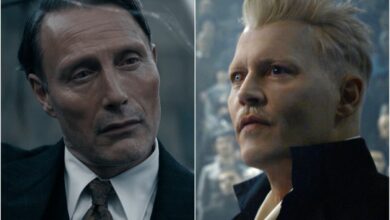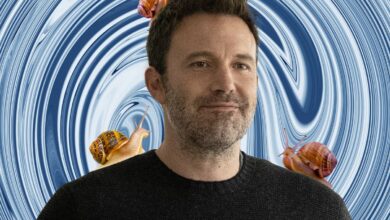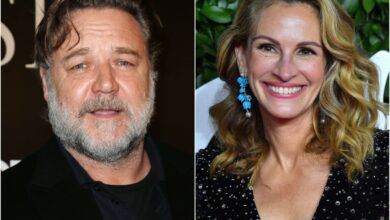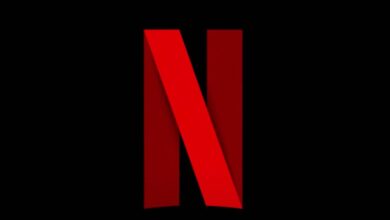25 books that should have never been made into films
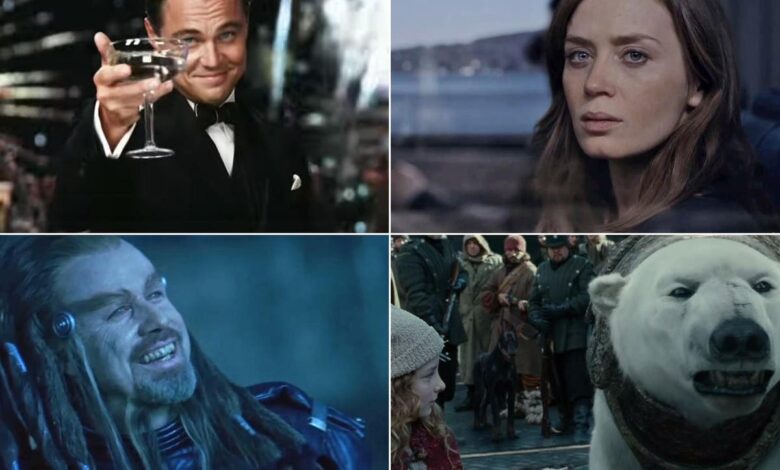
It makes sense for Hollywood to look to the written word for inspiration when it comes to producing new films. But the sad truth is, there’s become an over-reliance on using pre-existing material to either find the next big franchise or to capitalise on the success of a bestseller. It’s fair enough – these adaptations will always be guaranteed large box office takings thanks to the book’s readers merely showing up to see how the film has translated certain parts to the screen.
While there are solid examples of successful big-screen adaptations – The Lord of the Rings, stray Harry Potter films, Gone Girl – there have more than likely been a larger number of botch jobs. Nothing is more disappointing than seeing a film version of your favourite book and realising minutes in that the director has misjudged the novel’s spirit or two actors have been cast in the wrong roles and have no chemistry whatsoever.
Below, we rank the 25 books that should have been left alone and never made into films.
Dune was never going to be an easy book to turn into a two-hour action movie – and David Lynch’s attempt seemed to be proof that it should be left alone. The director’s adaptation is a nonsensical, deeply convoluted disaster that wastes an enjoyably oddball cast. It’s the only one of Lynch’s films the director has publicly disowned. A version from Arrival director Denis Villeneuve, starring Timothée Chalamet and Zendaya, received much better reviews from critics.
Fresh off the success of bestselling novel The Bonfire of the Vanities, Warner Bros bought the movie rights from Tom Wolfe for a staggering $750,000. Tom Hanks and Melanie Griffiths were both (mis)cast in the lead roles after director Brian De Palma’s preferred choices turned him down. The filmmaker himself struggled to spin the 1990 production’s many plates amid reports of rising on-set troubles that were all witnessed and documented in Julie Salmon’s follow-up book, The Devil’s Candy.
1991 gangster film Billy Bathgate, which stars Dustin Hoffman and Nicole Kidman, did no justice to EL Doctorow’s beloved 1989 novel. With the efforts of Oscar-winning Kramer vs Kramer director Robert Benton and a script by Tom Stoppard, the film had all the ingredients to become as good as The Godfather, Scarface, and Goodfellas. Instead, it was a hollow adaptation, largely because all the magic was lost with the absence of the central character’s narration – a huge reason behind the novel’s success.
The Scarlet Letter (1995) is regularly ranked as one of the worst book adaptations ever made, and for good reason. Described by DH Lawrence as “a perfect work of the American imagination,” the book was handed a Hollywood makeover that found itself the brunt of ridicule after flopping at the box office. Director Roland Joffé strayed so far from Nathaniel Hawthorne’s pages that what should have been an enticing romance became an extremely throwaway erotic drama.
To be fair, few would be able to turn L Ron Hubbard’s allegedly Scientology-inspired Battlefield Earth (2000) into something decent. This John Travolta-with-dreadlocks epic has since gone down in “Worst Movies Ever” infamy, effectively ending Travolta’s mainstream movie career and destroying Barry Pepper’s before it even started.
Louis de Bernières’s Captain Corelli’s Mandolin was one of the biggest literary successes of the 1990s, but the 2001 film version – from the same British company that made Notting Hill – lost all traces of the novel’s heart and soul. The dialogue is disastrous and lead stars Nicolas Cage (Captain Corelli) and Penélope Cruz (Pelagia) lack any chemistry. It may look pretty, but this adaptation was a complete mistake.
The beauty of HG Wells’s 1895 science fiction novella The Time Machine was lost amid all the CGI in this insipid 2002 adaptation, which was directed by Wells’s great-grandson, Simon. Everything featured, including Guy Pearce’s lead performance, is wooden apart from the copper time travel contraption at the heart of the story.
There have been just as many disappointing Stephen King adaptations as there have been successful ones, but Dreamcatcher sits at the bottom of that list. The talent was present (Damian Lewis! Morgan Freeman! Timothy Olyphant!), but the end product never once correlates to anything at all decent. The film’s late-stage swerve into monster movie territory is nothing short of dreadful.
Before he took on the role of 007, Daniel Craig starred in this adaptation of Ian McEwan’s novel about people whose lives become entangled after witnessing a deadly accident. While Craig’s performance as college lecturer Joe, along with Rhys Ifans as Jed – the man who becomes obsessed with him – are convincing, the film allows little time for character development and suffers because of it.
Nick Hornby adaptations don’t inherently need to be set in the UK (the John Cusack-starring High Fidelity, if you like that sort of thing, is something of a classic, after all), but they do need to translate the fussy, infuriating male neuroses of his novels. The Perfect Catch is the 2005 US adaptation of Hornby’s Fever Pitch, released a decade after Colin Firth starred in his own British adaptation, and transforms the source material into a more throwaway and uninteresting big-city romcom. Drew Barrymore, in a “girlfriend” role significantly beefed up in comparison to Hornby’s novel, is great, but watching her try and source chemistry with a shrill and unappealing Jimmy Fallon (in one of his rare, pre-talk show acting roles) is harrowing.
The Da Vinci Code is a stinker of the highest order. Its sequels, Angels & Demons (2009) and Inferno (2016), are also awful films, but the reason the initial Dan Brown adaptation ranks as the worst is because the others wouldn’t have existed had this one not been so successful.
20th Century Fox clearly wanted Eragon to be their answer to Harry Potter, but the terrible reviews stopped that plan dead in its tracks. Eragon is the worst kind of fantasy adaptation – one where all of the source materials’ sense of fantastical vibrancy disappears during its translation to the big screen.
‘The Time Traveler’s Wife’
Augusten Burroughs’s Running with Scissors consistently walks a dangerous tightrope between manic farce and adolescent horror tale. Ryan Murphy’s adaptation, released in 2006, collapses beneath such a task. You can see why Murphy, for his feature film debut, would be attracted to a tale of neurotic family dysfunction and sexual awakening as they are themes that crop up in many of his TV shows (Glee, American Horror Story, etc). But this adaptation is a tonal misfire from start to finish, despite the best efforts of an all-star cast that includes Annette Bening, Gwyneth Paltrow, Evan Rachel Wood and Brian Cox. It’s no wonder this sunk without a trace.
Where to start with this disaster of a film? Audrey Niffenegger’s The Time Traveller’s Wife is beautifully and convincingly written, but there’s nothing convincing about its adaptation. Producers thought casting two major Hollywood stars was a good idea, but Rachel McAdams and Eric Bana had zero chemistry.
Cloud Atlas (2012) is by no means a disaster, but it’s meandering plot lines, sketchy pacing and often questionable acting (Hanks has never been dodgier) do David Mitchell’s sprawling, inventive novel a disservice. Still, it’s an enjoyable Wachowskis romp that features Hugh Grant as a cannibal tribesman, so it has that going for it.
Fans of The Hobbit did not expect the novel, so short and sweet and set in such a familiar and adored world, to be messed up by The Lord of the Rings maestro Peter Jackson – but that’s exactly what happened. While the trilogy of Hobbit films were a box-office success, they came under fire from critics for stretching the book’s material too thin. Third outing, The Battle of Five Armies, was the worst-received of all three.
Leonardo DiCaprio and Carey Mulligan in the 2013 film adaptation of ‘The Great Gatsby’

